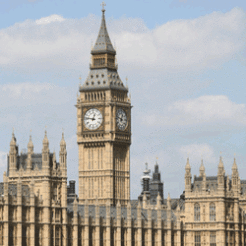A hung parliament may not necessarily spell disaster for the sector, says Garreth Spillane. Just look at New Zealand.
What a week! The election has produced a hung parliament and no coalition deal as yet. Some commentators and industry leaders are warning of the potential calamitous outcomes of this situation. In the mainstream and sector press, contributors have been clambering over one another to paint the picture of dysfunction.
A lot of these pundits are going to be disappointed. Whatever you think of the voting system and wherever you sit on the political spectrum, it is highly likely that we will see a better policy environment as a result of this inconclusive election result.
Being a New Zealander and having worked in the Civil Service there, I have a fairly good understanding of far-flung outpost of Westminster democracy. Since the 1996 election, the first under the MMP voting system, no party has enjoyed an outright majority, leading to coalition negotiations commencing as results are announced. Each parliament under this system has resulted in a different coalition composition, with each of these parliaments having a different dynamic in terms of the legislative programme; the second term of the Fifth Labour Government (2002-2005) was significantly focussed on social legislation.
I read a great quote from Professor Jonathan Boston, Director of the Institute of Policy Studies at Victoria University (Wellington, New Zealand), who said of the MMP (Mixed Member Proportional) voting system and the coalitions that result:
“The new [MMP] system has generated a better policy process, a more representative parliament and probably better policy outcomes.”
The three major UK parliamentary parties are fairly centrist on most key issues and therefore enjoy a commonality that is not as prevalent in many European countries where coalition politics tends to play out at the extremes of the political spectrum. These policies and the parties’ ability to negotiate them will be the basis of the longevity of the next Government.
As the talks continue at Westminster, my hope is that we as charities can make a greater impact on the public policy process. Coalition politics will change the way policy is formed – more voices will be heard in developing legislation that is agreeable to coalition partners, and this presents an opportunity for all of us to contribute to our democracy.








